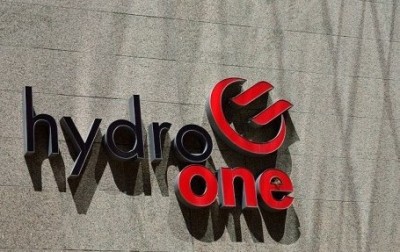
Ontario strengthens OEB in wake of Hydro One IPO
by Canadian Manufacturing.com Staff

Government says legislation will help protect energy ratepayers

The legislation follows the province’s privatization of 15 per cent of Hydro One Nov. 5. PHOTO: Raysonho, via Wikimedia Commons
TORONTO—Less than a month after the first shares of Hydro One hit the market, the government of Ontario has passed legislation that it said will protect the province’s energy consumers by strengthening the Ontario Energy Board.
The first 15 per cent of the once fully-government-owned utility was sold off Nov. 5 in a highly-controversial initial public offering that netted the province over $5 billion in share sales, deferred tax asset benefits, a special dividend and payments in lieu of taxes.
Prior to the sale, the government insisted the OEB will remain in control of Ontario’s electricity rates even after the IPO.
“Applications for electricity rates from companies like Hydro One are reviewed by the OEB and they – not the companies themselves – make the final decision,” the government said at the time.
Along with the assurance, the Ontario government also outlined proposed legislation designed to strengthen the OEB, which cleared the legislature Dec. 1.
“A stronger Ontario Energy Board will ensure energy consumers are best protected,” Bob Chiarelli, Ontario’s Minister of Energy, said. “New rules to ban door-to-door sales for energy contracts and significantly increased fines for violations of OEB rules will improve consumer protections and the reliability of our electricity system.”
In addition to banning door-to-door sales, the protections will grant the OEB stronger enforcement powers, permitting penalties of up to $1 million. The legislation will also increase customer representation at OEB proceedings, which the government said will provide the province with the ability to “identify priority projects to ensure that critical transmission infrastructure is built in a timely manner.”
The OEB will continue to set rates for three gas distributors in the province, 70 local distribution centres, and five transmitters.
Meanwhile, the IPO’s critics have remained vocal since the sale. Canadian Union of Public Employees Ontario president, Fred Hahn, for example, said the sale was a “betrayal” of Ontarians and called on the government to stop any further privatization.
“The Liberals must stop before their mistake becomes the economic tragedy of a generation,” he said following the sale.